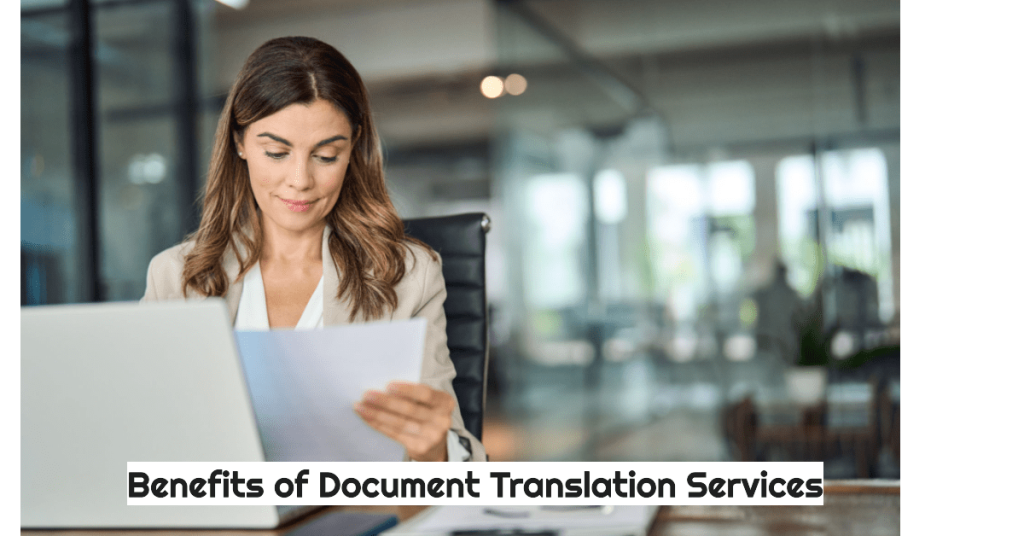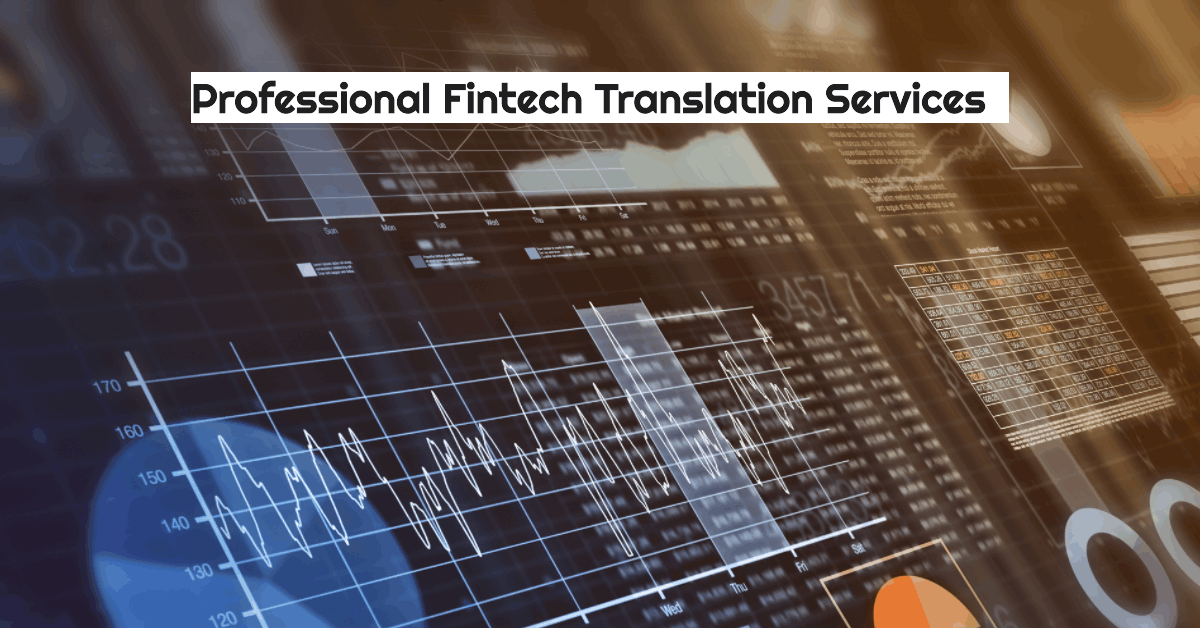Benefits of Document Translation Services for Global Business Success
In today’s increasingly interconnected world, businesses are no longer confined to their local markets. The rise of globalisation has opened doors to new opportunities, but it also presents challenges, particularly regarding communication.
Document translation services offer a vital solution for companies striving to overcome language barriers and reach their target audience effectively.
This article explores the numerous benefits of document translation services and how they can enhance global business success.
What are the Key Benefits of Document Translation Services?
How does accurate translation improve communication?
Accurate translation is essential for effective communication across different languages. Misunderstandings can lead to costly errors, particularly in business contexts where precision is crucial.
By utilising document translation services, businesses ensure that their messages are conveyed clearly and accurately, thereby minimising the potential for miscommunication. This is particularly important when translating marketing materials, contracts, or legal documents, where the slightest error can have significant repercussions.
Professional translators possess the linguistic skills required to translate documents while preserving the original intent and nuance, ensuring that the message resonates with the intended audience in their native language.
What are the advantages of using professional translation services?
There are several advantages to employing professional translation services.
Firstly, professional translators are adept in the art of translation, equipped with the knowledge and experience necessary to deliver high-quality translations. They understand the intricacies of language and culture, allowing them to navigate the subtleties that can affect meaning.
Moreover, professional translation services can provide specialised expertise in various fields, such as legal document translation or business translation, ensuring that industry-specific terminology is accurately translated. This level of proficiency not only enhances the quality of the translation but also builds trust with clients and stakeholders, who rely on the accuracy of the documents being presented.
How can document translation services enhance business operations?
Document translation services can significantly enhance business operations by facilitating smoother interactions with clients, partners, and suppliers across the globe. By eliminating language barriers, companies can engage in effective negotiation processes, ensuring that all parties have a clear understanding of the terms and conditions.
Furthermore, businesses can expand their reach into new markets, tapping into diverse customer bases that were previously inaccessible. This expansion requires a comprehensive understanding of local cultures and preferences, which professional translation companies can provide through their localisation services.
By adapting marketing materials and business documents to suit the cultural context of the target audience, companies can achieve greater resonance in their messaging and drive better results.
How Does the Translation Process Work for Document Translation?
What are the steps involved in the translation process?
The translation process typically involves several key steps to ensure the final output is accurate and of high quality. Initially, the document is assessed for its content, complexity, and required turnaround time.
Once this analysis is complete, a qualified translator is assigned to the project. The translator then translates the document, paying close attention to maintain the original meaning and style.
After the translation is completed, the document undergoes a thorough review and editing process to revise for any errors or inconsistencies.
Finally, the translated document is formatted to match the original layout, ensuring a seamless presentation. This meticulous process guarantees that businesses receive an effective translation that meets their specific needs.
Why is working with a professional translator crucial?
Working with a professional translator is crucial for several reasons. Professional translators possess not only the linguistic skills necessary for translation but also a deep understanding of the cultural nuances that influence communication.
Their expertise allows them to produce a translation that is not only accurate but also culturally appropriate. This is particularly important in business translation, where the wrong choice of words or phrases can lead to misunderstandings or offense.
Moreover, professional translators are often familiar with industry-specific terminology, ensuring that the translated document adheres to the standards expected in the field it pertains to. By collaborating with a professional, businesses can rest assured that their documents are in capable hands.
How does turnaround time affect the translation service?
Turnaround time is a critical factor in the translation service, as it determines how quickly businesses can receive their translated documents.
In a fast-paced global market, timely communication is essential for maintaining competitiveness. Translation agencies typically offer varying turnaround times based on the complexity and length of the documents.
It is important for businesses to discuss their deadlines with the translation service provider beforehand, allowing for realistic expectations to be set. While expedited services may come at a premium, the benefits of quick access to accurately translated documents often outweigh the costs, particularly in urgent business scenarios.
Why Choose Certified Translation Services for Legal Documents?
What are the risks of using non-certified translation services?
Using non-certified translation services, especially for legal documents, can expose businesses to significant risks. Legal documents require precise translation, as even minor inaccuracies can lead to legal disputes or compliance issues. Non-certified translations may not adhere to the necessary standards, resulting in documents that are not legally binding or accepted in court.
Furthermore, relying on machine translation or unqualified translators may lead to misinterpretations of critical terms, creating liabilities for businesses. Consequently, opting for certified translation services is essential for ensuring the accuracy and reliability of legal documents.
How do certified translation services ensure accuracy?
Certified translation services ensure accuracy through rigorous quality control processes. Professional translators who work with certified services often possess relevant qualifications and experience in legal terminology, making them well-suited for translating complex legal documents.
These services typically follow standardised procedures that include thorough reviews and proofreading by additional qualified translators or editors. Furthermore, certificates of accuracy accompany the translations, providing assurance that the documents meet the required legal standards. This level of diligence is vital for businesses that must navigate the complexities of legal requirements in different jurisdictions.
What types of legal documents require professional translation?
Several types of legal documents necessitate professional translation services. These include contracts, agreements, patent applications, court documents, and immigration papers, among others.
Each document type has its own set of legal implications and required terminology, making accurate translation crucial. For instance, a misinterpreted clause in a contract can lead to disputes and potential litigation, while inaccuracies in immigration documents may result in application rejections.
By utilising professional legal document translation services, businesses can mitigate risks and ensure that their legal paperwork is compliant and accurately reflects their intentions.
How Can Localisation Services Benefit Your Business?
What is the difference between translation and localisation?
While translation and localisation are often used interchangeably, they represent distinct processes. Translation focuses on converting text from one language to another while maintaining the original meaning.
In contrast, localisation goes a step further by adapting the content to suit the cultural, linguistic, and practical preferences of the target audience. This includes adjusting phrases, idioms, and even images to better align with local customs and norms.
Businesses looking to penetrate new markets must understand the importance of localisation, as it plays a key role in creating a relatable and engaging experience for potential customers.
How does localisation help in entering new markets?
Localisation is a critical strategy for businesses aiming to enter new markets successfully. By tailoring products, services, and marketing materials to meet local preferences, companies can effectively engage their target audience.
Localisation not only enhances customer satisfaction but also fosters trust and credibility, which are vital for building brand loyalty. For example, a marketing campaign that resonates culturally with a local audience is likely to generate better engagement than a one-size-fits-all approach. Through effective localisation, businesses can establish a strong foothold in new markets, ultimately driving growth and expansion.
What cultural nuances should be considered in localisation?
When localising content, businesses must consider various cultural nuances that can impact how messages are received. These nuances include language colloquialisms, societal norms, and cultural references that may not translate directly across languages. For instance, humor is often culture-specific and may not resonate with audiences in different regions.
Additionally, colors, symbols, and imagery can have different connotations in various cultures, which may affect how marketing materials are perceived. By being mindful of these cultural subtleties, businesses can create localised content that is engaging and appropriate for their target demographic, ultimately enhancing the effectiveness of their communication strategies.
What to Look for in a Document Translation Service Provider?
What qualifications should skilled translators possess?
When searching for a document translation service provider, it is essential to evaluate the qualifications of the translators involved. Skilled translators should possess a strong command of the source and target languages, often demonstrated through relevant certifications or degrees in translation or linguistics.
Additionally, experience in the specific industry relevant to the documents being translated is crucial, as it ensures familiarity with specialised terminology. Moreover, professional translators should have a proven track record of delivering high-quality translations, as evidenced by client testimonials or case studies. This level of expertise is vital for ensuring that the final product meets the highest standards of accuracy and effectiveness.
How to assess the quality of translation service providers?
Assessing the quality of translation service providers can be done through several key indicators. Look for agencies that offer samples of their previous work, allowing potential clients to evaluate the linguistic proficiency and style.
Additionally, consider their reputation in the industry; positive reviews and testimonials from past clients can provide insight into their reliability and quality of service. It is also beneficial to inquire about their quality assurance processes, including how they handle revisions and feedback.
Finally, establishing clear communication with the provider during the initial consultation can help gauge their professionalism and commitment to delivering high-quality translation services.
What are the common pitfalls to avoid when choosing a translation service?
When selecting a translation service provider, it is important to avoid several common pitfalls.
Firstly, do not solely focus on cost; while budget considerations are essential, opting for the cheapest option may result in subpar translations that can harm your business reputation.
Secondly, avoid providers that lack transparency in their processes; a reputable translation agency should be open about their methodologies and quality assurance practices.
Additionally, be wary of agencies that do not specialise in your industry, as they may not fully grasp the nuances necessary for accurate translations.
Lastly, ensure that the translation service you choose has a robust customer support system, as effective communication is crucial throughout the translation process.
Choose WhizWordz for Your Document Translation Services
In WhizWordz International, we ensure every detail—from formal letters and legal papers to business proposals and personal certificates—is accurately translated, backed by our proven expertise.
At WhizWordz, our commitment to quality is reinforced by:
Highly Proficient Linguists:
We don’t just translate—we understand context. Our linguists are fluent in over 40 language pairs and bring subject-matter expertise to ensure precision and clarity in every document.
Transparent and Competitive Pricing:
Our rates are market-friendly and clearly laid out, so you always know what you’re paying for—with no hidden charges.
Customer-Centric Approach:
Our responsive and friendly team is here to make your translation experience smooth and stress-free, tailoring our service to your specific document needs.
Efficient Workflow:
Our streamlined processes guarantee timely delivery with minimal fuss—so your translated documents are ready when you need them.
Comprehensive Solutions:
From translation to copywriting, transcription, and typesetting, we offer a one-stop solution for all your multilingual document needs.
Choose WhizWordz International for a reliable, accurate, and seamless document translation service experience.
Let me know if you’d like a shorter or more formal version.
Frequently Asked Questions (FAQs)
Q1: Why is it important to use native language speakers for translation projects?
A: Using native language speakers ensures that the translation is not only accurate but also culturally relevant. This is particularly important for technical documents and legal document translation, where nuances in language can significantly impact meaning.
Q2: What should I consider when choosing professional document translation services?
A: When choosing professional document translation services, consider the expertise of the translators, their experience with specific industries, and their ability to handle various types of documents, including legal and technical documents.
Q3: How do translation solutions facilitate effective communication in international markets?
A: Working with skilled translators for multilingual translation ensures that the nuances of each language are respected and that the translations are culturally appropriate. This expertise can significantly enhance the effectiveness of marketing and communication strategies.
Q4: What languages do your professional document translation services that you provide in?
A: Our translation services for industrial document translations cover a wide range of languages, allowing us to provide a industrial document translation to any language you may need, ensuring effective communication in diverse linguistic contexts.
A: Our professional industrial translation services specialise in a range of languages, including Chinese, Japanese, Korean, Vietnamese, Indonesian, Malay, Portuguese, Spanish, German, and many others to ensure effective communication across global markets.
Q5: What are the advantages of working with skilled translators for multilingual translation?
A: To obtain professional translation services for your documents, simply reach out to us with your copies and specific requirements.
Our team will guide you through the process, provide a quote, and assign a professional document translator to your project.
Q6: Why should I choose your translation service provider over other translation services in Singapore?
A: We stand out from other translation services in Singapore due to our specialised focus on the industrial technical field. We are committed to quality, and our ability to deliver fast, affordable, and reliable industrial translation services tailored to your needs.




